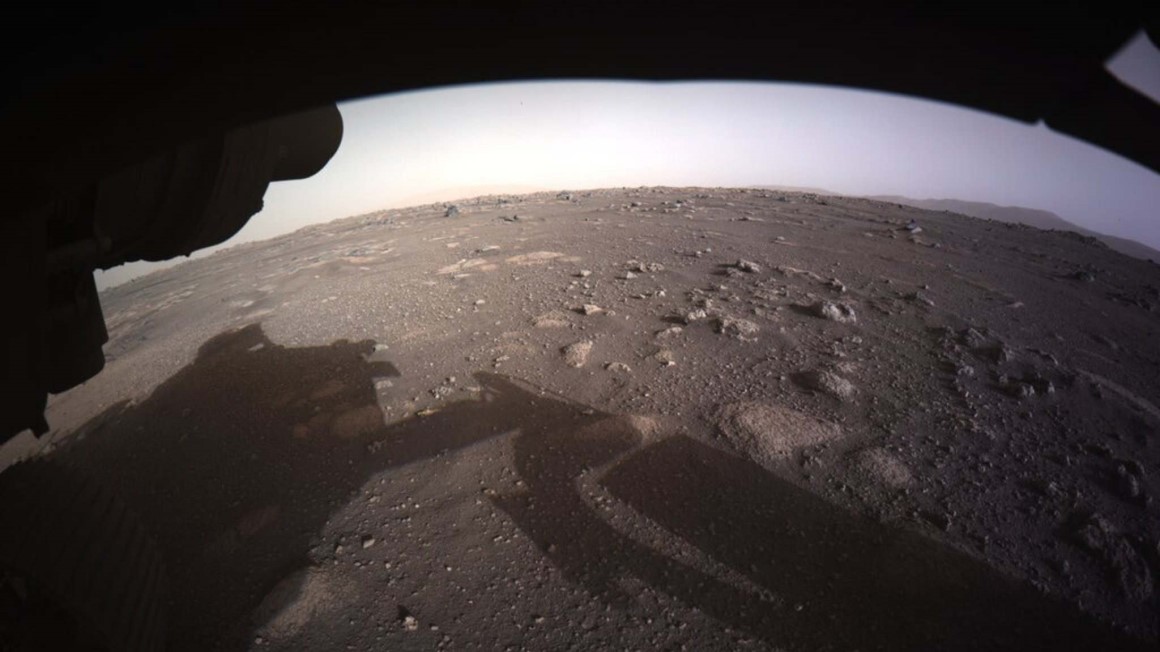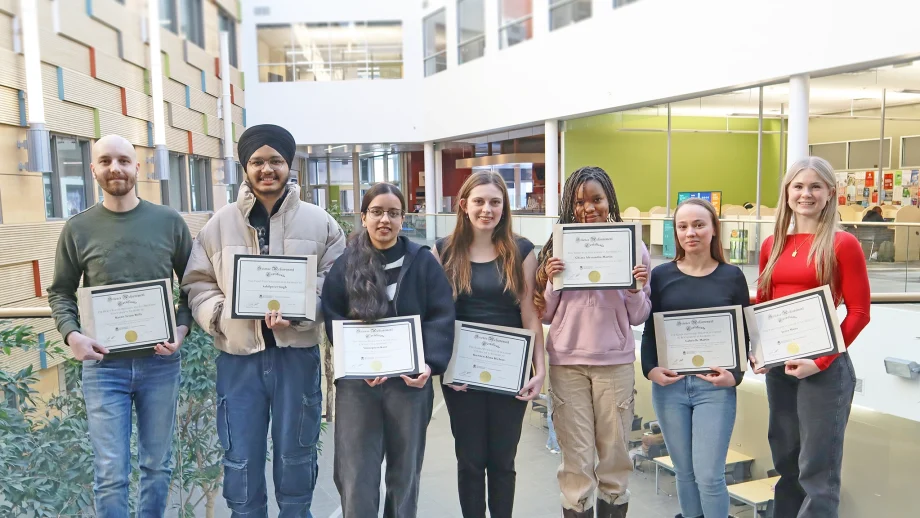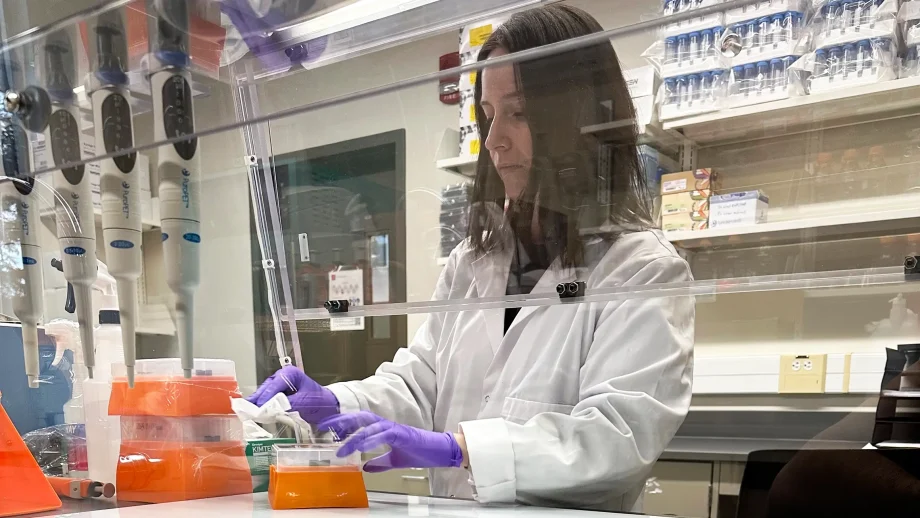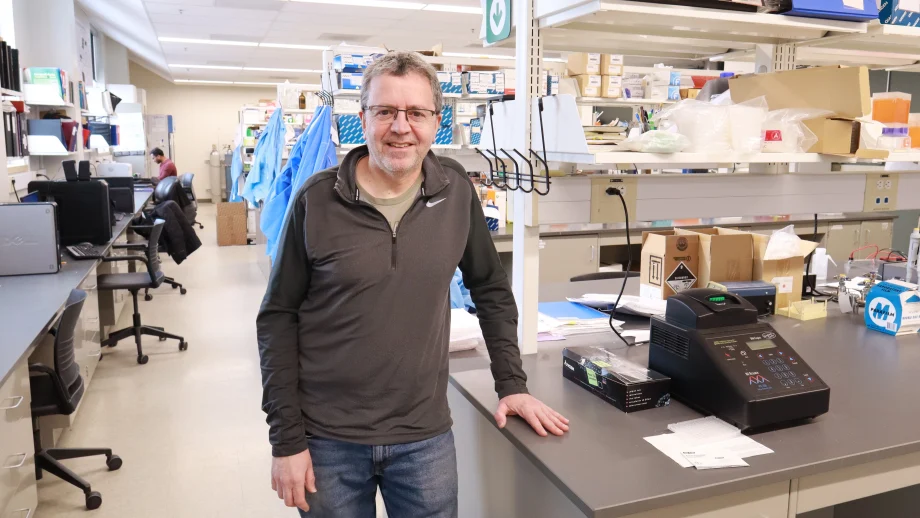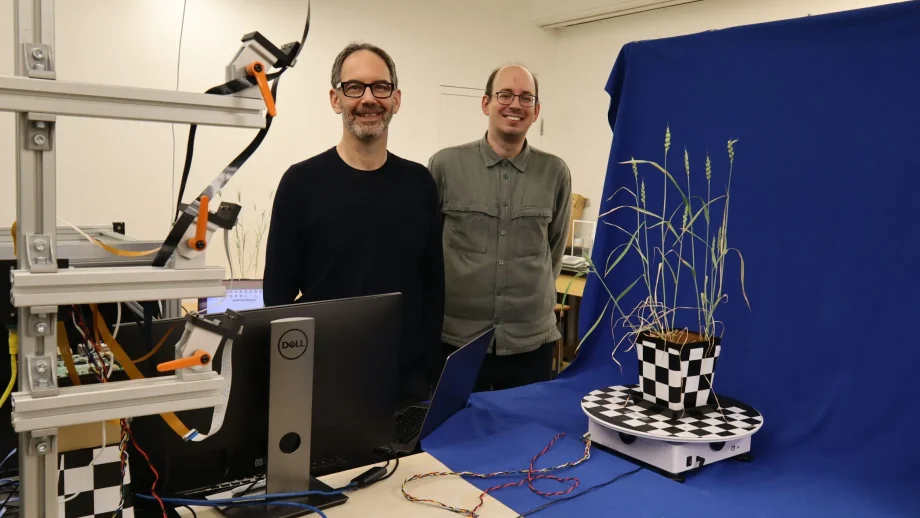Dr. Ed Cloutis was thrilled when NASA’s Perseverance rover touched down on Mars last week, a moment captured in a series of photos and videos that his team helped make possible.
He and his team of University of Winnipeg students played a key role in testing some of the on-board camera technology, including the Mastcam-Z, which is responsible for the majority of Mars photos circulating online since the landing on Thursday, February 18.
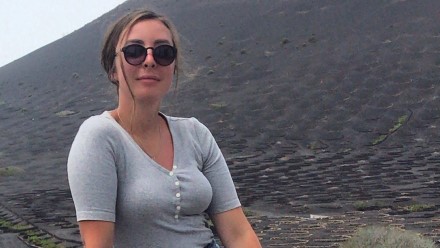
Stephanie Connell travelled to Spain in 2019 as part of a lunar rover analogue mission. Photo provided.
Cloutis is a faculty member in the Department of Geography with a background in geology and spectroscopy. He’s an expert in planetary exploration, planetary science, and remote sensing, and has been a member of the Perseverance rover’s science team since they first proposed putting cameras on the rover in 2013.
Cloutis is proud of UWinnipeg’s involvement in this mission and looks forward to many more years of supporting and participating in the mission as the rover continues to explore Mars looking for signs of past or present life.
“Two rock samples from our collection are on the rover as part of the Supercam instrument’s calibration panel,” explained Cloutis. “We also helped test the calibration targets that are mounted on the rover to help the rover’s cameras collect images and scientific data of the surface.”
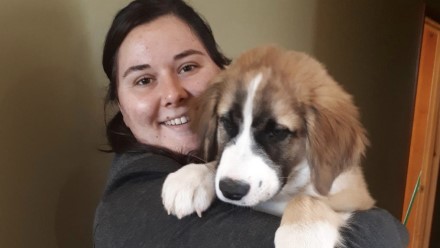
When Nathalie Turenne isn’t exploring remote planets, her four-legged friend is always there to bring her down to earth. Photo provided.
In summer 2020, he recruited a group of undergraduate students from across disciplines to work together in two hands-on, multi-day simulated rover exploration missions that involved an international team of players.
Nathalie Turenne and Stephanie Connell were among those students.
Turrene recently graduated from UWinnipeg with a geography degree and plans to continue her studies in planetary science. She was thrilled to play a role in the Perseverance rover’s landing on Mars.
“The biggest highlight for me so far has been being able to see images from Mars and seeing all the potential science that can be done,” she said.
Connell, a fourth year environmental sciences major, agrees.
“My biggest highlight is that I get to be involved in the search for past or present life on Mars, and participate in Mars rover operations.”
About Dr. Ed Cloutis
Dr. Ed Cloutis has more than 25 years of expertise in earth and planetary remote sensing. His research focuses on developing new applications of remote sensing to explore the surface of the earth and planets in the solar system, both for geology and the search for extraterrestrial life.
He’s the Founder and Director of The University of Winnipeg’s Centre for Terrestrial and Planetary Exploration (C-TAPE), a state-of-the-art lab dedicated to advancing planetary exploration and a member of science teams associated with a number of planetary exploration missions, including the NASA-led Dawn asteroid rendezvous mission, the NASA Mars Science Laboratory (Curiosity) rover, the NASA-CSA OSIRIS-REx asteroid sample return mission, and the European Space Agency’s ExoMars Trace Gas Orbiter and ExoMars rover.
In the news
U of W team to document search for life on Mars (Winnipeg Free Press)
Mars rover shows red planet in new light while inspiring youth back on Earth (City News)

